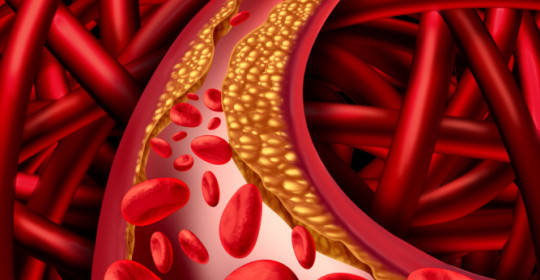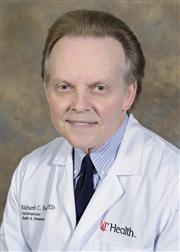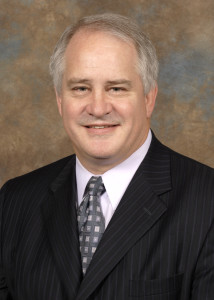
Research Focus in New Vascular Medicine Training Program
The University of Cincinnati Heart, Lung, and Vascular Institute (HLVI) will soon initiate a three-year Mentored Research Career Development Program in vascular medicine. The goal of this initiative is to establish a comprehensive training program that will emphasize high-quality clinical and translational research in the vascular sciences, and prepare participants to serve as mentors for the next generation of physicians entering the field, an especially important factor in an underserved area such as vascular medicine.
Richard C. Becker, MD, Chief of the Division of Cardiovascular Health and Disease, states, “Ideally, a vascular medicine program includes a number of disciplines and provides participants access to plentiful surgical opportunities in both open and endovascular procedures, a robust cardiovascular program, and a highly developed neurovascular program. The HLVI combines all three, allowing for formation of a multidisciplinary initiative that addresses a broad spectrum of vascular conditions, disorders, or diseases.”
In keeping with the HLVI’s stated mission of fostering translational research in addition to providing outstanding patient care and clinician education, research will also be emphasized, with admission open to MDs and MD-PhDs with the skill sets required to be master clinicians and physician-scientists. The first year of the program would be entirely clinical in nature, with each of the subsequent years focusing 75% to 100% on translational research. A one-year program will also be offered to physicians that already have advanced training and research skills who are interested in a career in vascular medicine. By the end of the program, participants should be able to sit for the vascular medicine boards, and should have written and/or contributed to at least one NIH-level grant proposal.
Although Becker’s arrival and creation of the UC Heart, Lung and Vascular Institute spurred development of the program, the foundation was being built over the past several years by Chief of Vascular Surgery, George H. Meier, MD. Meier notes: “Since many fellowship programs include a small amount of vascular training within their larger internal medicine or cardiovascular programs, it has been rare to have a program dedicated specifically to the vascular field.” Meier has been a champion of this specialized training, and will oversee the clinical aspect of the program. It will be the only program of its kind in the region, the type that can only be found at major academic health centers.
One important factor in future research efforts will be the increasingly powerful statistical, computational, and bioinformatic approaches to extracting data from vastly larger data sets than those previously available. A clear example is the explosion in the use of electronic medical records, and the concurrent increase of available information. Informatics will allow researchers to analyze this data and develop new solutions from it. Becker concludes by noting that there are still many unanswered questions in vascular medicine, despite the substantial advances that have been made in surgical care. It is hoped that this program will further the nascent medical understanding of vascular disorders, and perhaps one day may even help participants contribute to the development of preventive and new medical treatment modalities.
Cognitive Skills Required for Competence in Vascular Medicine Thorough understanding of:
- Vascular biology constructs that govern normal blood vessel function
- Pathologic mechanisms that lead to vascular disease, including the molecular and cellular processes that result in atherosclerosis and thrombosis
- Systemic manifestations of atherosclerosis and the risk factors that contribute to its development; guidelines established to modify risk factors
- Pathophysiology, clinical manifestations, natural history, evaluation, and management/treatment of:
- Peripheral arterial disease, renal artery stenosis, extracranial cerebrovascular disease, aortic and peripheral artery aneurysms, other arterial diseases, venous thromboembolism; microvascular disease, chronic venous insufficiency and lymphedema
- Prothrombotic disorders including inherited and acquired thrombophilic states
- Preoperative evaluation and perioperative care of the vascular surgery patient
- Noninvasive vascular tests and conventional contrast angiography
 Richard C. Becker, MD
Richard C. Becker, MD
Chief, Division of Cardiovascular Health and Disease
Director and Physician-in-Chief, UC Heart, Lung and Vascular Institute
513-558-4332
beckerrc@ucmail.uc.edu
 George H. Meier, MD, RVT, FACS
George H. Meier, MD, RVT, FACS
Professor, Chief, and Program Director – Vascular Surgery
Director, Vascular Branch, UC Heart, Lung and Vascular Institute
513-558-5367
meierigh@ucmail.uc.edu

